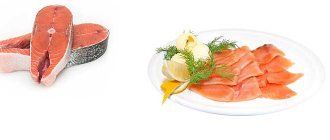If your goal is to quickly lose weight in a month, remember, it all depends on how long you spent gaining extra pounds, what kind of lifestyle you led and how you ate.
- How much weight can you really lose in a month? How much can you lose without exercise and eating right in a month?
- On a vegetarian diet
- On a protein diet
- Combining proper nutrition and exercise
- If you run every day for 30 minutes
- Losing weight while playing sports
- If you don't eat after 18.00
- If you eat 1000 calories a day
- Consuming 1200 calories per day
- Diet and proper nutrition
How much weight can you really lose in a month?
The greater your body weight, the easier it is to lose excess weight, but the last 2–5 kg are always more difficult to lose. If you want to lose weight without harm to your health, adhere to the principles of proper nutrition, and do not go on a strict diet. And also do not forget about physical activity, it burns more calories.
Below we looked at different options and methods for losing weight, including losing weight solely on proper nutrition, without sports, using training, gym classes, running and much more.
How much can you lose without exercise and eating right in a month?
IMPORTANT TO KNOW : when losing weight, first of all, excess fluid leaves the body. In the first week you can lose from 2 to 5 kg of excess weight, but this is not fat, but water.
Further, from the second week the body will burn its own reserves - fats. And here everything depends on you: health status, hormonal levels, hereditary predisposition to obesity, diet and activity. There are no exact indicators; for each organism the result is purely individual. To maintain health and further maintain weight, you need to lose 1 - 1.5 kg per week or no more than 200 g per day. The body, under strict restrictions, is capable of losing much more kilograms, but it will definitely return them and also leave them in reserve in case of possible starvation.
On a vegetarian diet
The following prohibitions apply to a vegetarian diet:
- Meat (food obtained by force) is prohibited;
- in some cases of more stringent restrictions (veganism), eggs, fish, and dairy products are prohibited.
With such a diet, the body experiences a deficiency of animal protein, which can lead to loss of muscle mass. Accordingly, part of the weight lost will be muscle. This threatens dystrophy. Since the body needs more time, about 4 hours, to digest meat (protein and animal fats), giving up meat will force the body to quickly spend its reserves of fat and protein. Thus, you can lose up to 2–3 kg per week, including muscle mass. You can lose 10 - 15 kg, but you will look sick with this diet.
Note! Vegetarian nutrition is only suitable for people with blood type II. Such an organism assimilates plant foods much better than animal ones. For others, such nutrition is unbalanced and contraindicated.
On a protein diet
One of the most effective weight loss diets is protein. But eating this way all the time is harmful to the body; first of all, the excretory organs suffer from a large amount of protein. Then, due to an unbalanced diet and monotony, the body gets stressed, under which it can easily accumulate the lost kilograms. But a protein diet will help you get rid of fat faster, due to the lack of carbohydrates, that is, energy. By eating small, frequent meals, you can maintain muscle mass. During the first week of a protein diet, with excess weight over 20 kg, you can remove up to 7 kg of weight, including water. Then the weight will come off more slowly, 200 - 250 g per day.
Combining proper nutrition and exercise
The more physical activity, the more energy (calories) is burned. Doing cardio for an hour burns up to 800 calories. This is an additional, significant help in the fight against fat. One gram of fat contains 9 calories. Consequently, about 90 grams of fat are burned per workout, excluding lost fluid.
A good result can be achieved if:
- the bulk of daily calories comes from protein foods;
- confectionery and flour products are excluded from the diet;
- complex and simple carbohydrates are supplied in the morning;
- large amounts of liquid are consumed;
- physical activity takes place 3 – 4 times a week.
If you run every day for 30 minutes
In half an hour you can spend up to 400 kcal if you load correctly. A rapid pulse is required, not lower than 120 beats/min. By calculating the calorie consumption from fat, we can say that 45 grams of fat are burned. But it is important to consider that fat is not burned immediately, but after 20 minutes from the start of the run, with the exception of training on an empty stomach. If you eat a large lunch and then start training, only the food you eat will be burned. Therefore, nutrition plays a huge role.
Losing weight while playing sports
Any, even the most difficult workout will be meaningless if you do not adhere to proper nutrition and also overeat. If you consume 3000 - 4000 calories a day while playing sports, you will only gain weight, and not necessarily muscle. The main principle of losing weight is to consume fewer calories than the body can burn.
If you don't eat after 18.00
The last meal at 18.00 is effective for weight loss if you go to bed no later than 22.00. When fasting for more than four hours, or even the whole night, the body receives an alarm signal, and a reverse, cumulative effect occurs. If you allow yourself a low-fat fermented milk product before bed, nothing bad will happen. For example, kefir satisfies hunger well and does not contain carbohydrates, which turn into fat.
If you eat 1000 calories a day
For proper weight loss, it is not recommended to consume less than 1200 calories per day. Such nutrition is extremely dangerous and entails a number of negative consequences. You won’t be able to eat so little for a long time and, most likely, you will break down. And newly received calories, upon returning to the usual diet, will immediately be stored in the fat “depot”.
Consuming 1200 calories per day
The easiest way to lose weight is considered to be cutting calories. On the one hand, this is true, but it depends on what products you use to gain your daily calories. If you eat 1200 calories worth of baked goods, you won't be able to lose weight. The important thing is to maintain a balance of proteins, fats and carbohydrates. For example, 50% protein, 30% carbohydrates, 20% fat. Of course, sugar is prohibited. With a balanced diet of 1200 kcal, you can lose 4–6 kg per month, depending on your initial weight.
How many kilograms can a person safely lose?
The CDC states that a person can safely and effectively lose about 450-900 grams per week. Based on these figures, a person can easily lose 1.8-3.5 kg in a month. However, doctors advise people to take a balanced approach to their goals. Where to start:
- assess your general level of physical fitness
- talk to your doctor about underlying health conditions that may affect your workout or diet
- find out what types of activities they like
- set measurable goals
Everyone is different, and reasonable goals can motivate a person to work towards their goal.
What affects the rate of fat burning
For effective fat burning, the following conditions must be created:
- Proper nutrition. The less fat and carbohydrates you consume, the faster the body begins to burn its own fats;
- Physical activity. Additional energy expenditure will help you burn more calories;
- Metabolism. With a slow metabolism, fat burning processes occur very slowly, and sometimes fat burning does not occur at all. With proper nutrition and exercise, metabolism can be significantly improved.
What to avoid
A person should avoid fad diets. The creators of these diets often promise rapid, significant weight loss or other benefits. However, these diets are often difficult to maintain and some may be harmful.
Nutritionists advise avoiding any diet or product that offers or promises:
Fast weight loss
When a person loses weight quickly, they also lose water, bone and muscle mineralization. A person is also more likely to regain weight if they lose it quickly.
Special food combinations, strict menus or restrictions
It is difficult for a person to maintain this way of eating. Even if he takes a supplement or multivitamin, he won't be consuming enough of some important nutrients.
Not exercising
Physical activity is important to maintain human health.
Weight Loss Standards
To lose weight without harm to your health, you need to lose no more than one kilogram per week.
At the same time, the metabolic rate is maintained, internal organs do not suffer, the skin does not lose elasticity, and the strength to fight weight remains. With this type of weight loss, the results will last for a long time. It is important to know! Common mistakes
- starvation. With prolonged hunger, metabolism is disrupted, and fats begin to accumulate even more;
- refusal of fats. Unsaturated fats are not harmful to weight loss, unlike trans fats. Compounds of unrefined oil molecules are capable of combining with free fats and being excreted along with them. Therefore, the right fats will only speed up the process;
- refusal of salt. Salt does retain excess fluid in the body, but only if the water-salt balance is disturbed. Salt does not affect weight loss. To maintain bone structure and prevent cramps, consume 2 grams of salt per day.
Eating habits
A diet consisting of healthy foods is an important part of achieving and maintaining a moderate weight.
The CDC recommends that people adopt the following dietary habits:
- eating protein from poultry, lean meats, beans, fish, nuts and eggs
- consume plenty of vegetables, fruits, low-fat dairy products and whole grains
- avoid trans fats, cholesterol and saturated fats
- limit foods with added sugar
- reduce salt intake
People who want to lose weight also need to determine their calorie needs. A person must determine a reasonable caloric intake for each day.
Calorie counting
To track your weight loss process, you need to keep a food diary. There are tables of calories and BJU (proteins, fats, carbohydrates) foods, which make it easier to track your diet. It is important to know the exact weight of the portion in order to correctly count calories. To lose weight and stay healthy, you need to consume from 22 to 26 kilocalories per 1 kg of weight. We multiply the number of calories by our own weight - we get the daily requirement. In this case, the body should receive 2 - 3 g of protein per 1 kg of weight, 2 - 3 g of carbohydrates, 1 - 2 g of fat. We multiply the indicators by your own weight, now you can find out how many calories you should consume daily. Calculating calories is simple:
- 1 g of protein contains 4 kcal;
- 1 g carbohydrate – 4 kcal;
- 1 g fat – 9 kcal.
A combination of training, diet and running
By combining diet with sports exercises, you can lose maximum fat in a month. The stronger the physical activity, the faster the calories disappear. Intense loads allow you to burn up to 800 kkl per hour. There are only 9 kcl in 1 g of fat mass. This means that 90 g of fat is consumed in 1 workout, excluding water.
Optimal weight loss is only possible if you combine exercise with proper nutrition:
- Introduce protein foods into your diet;
- Give up sugar, sweets, baked goods;
- Consume carbohydrates, except vegetables, in the morning;
- Drink plenty of water.
If you train with dumbbells, stretch, run and count calories, you can burn 6 kg in a month. While exercising, gradually increase the load. You can purchase a pedometer and track the kilometers traveled per day.
How to lose weight correctly
Diet and proper nutrition
Remember, any diet has a temporary effect; in order to keep yourself in shape, you need to become committed to proper nutrition once and for all. It does not contain strict restrictions, and there will be no desire to break.
The main rules for proper weight loss:
- eat frequently, in small portions, at least every 3 hours;
- do not skip breakfast - the most important and high-calorie meal of the day;
- make the right snacks: fruits, vegetables, dried fruits, dairy products and nuts;
- do not overeat;
- do not eat before bedtime;
- In the evening, carbohydrates are prohibited, except for fiber-rich vegetables.
Exercise and sports
Fat burning workouts will help you in the fight against excess weight.
Note! The correct set of exercises and loads should be compiled by a qualified specialist.
Available methods will help you train on your own: running, cycling, any cardio machine, endurance exercises. The main thing is to train for at least 40 minutes, but no more than 1 hour, with a heart rate of 120 to 160 beats/min.
Running Tips
Be sure to start your workout with a warm-up. A few minutes of brisk walking is enough to warm up your muscles and ligaments. To avoid getting tired quickly, do interval jogging: running for 5 minutes, walking for 2 minutes. If you jog daily, train for at least 30 minutes. Hourly training 3-4 times a week will be quite effective. Do not run on a full stomach; at least an hour should pass after eating. After a run, do not eat your fatigue with sweets and fatty foods, it is better to drink water, and after half an hour start eating.
Advice from nutritionists
Not a single nutritionist will recommend a mono-diet, which contains 1 - 2 products, for high-quality and quick weight loss. Experts advise not to sharply limit calories and diet. This type of eating leads to stress and possible uncontrolled overeating. You don't have to give up your favorite foods. Allow yourself your favorite salad once a week, but instead of mayonnaise, season it with kefir or low-fat sour cream.
Tips from fitness trainers
The main mistakes that trainers notice among clients of fitness clubs are long workouts (2-3 hours) and fasting after such a serious expenditure of energy. If you want to lose weight, do not try to overload, this training regime will only lead to overwork. A tired body does not give up accumulated fat reserves; it needs to live off something. Hunger after exercise, on the contrary, slows down metabolism. All foods eaten after exercise will be completely absorbed and will lead to a speedy recovery.
Healthy foods
Fruits must be included in a balanced diet. Fermented milk products are considered an important component of it: kefir, yogurt, fermented baked milk (with a low fat content). The lowest calorie ones are lemons, watermelons, and grapefruits. Protein is very important for the health of the body. Low-calorie seafood is especially useful. The minimum calorie content is found in pollock, cod, and squid. From meat - it is recommended to consume veal. Useful protein is present in beef liver, kidneys, and heart.
Proper diet options
Eating healthy should be fun. Otherwise, it will be too difficult for anyone to adhere to his principles. Keeping this in mind, nutritionists offer the following options for breakfast:
- oatmeal (200 grams) + banana;
- cottage cheese (200 grams) + banana;
- any of the two previous dishes, instead of banana take grapefruit, raw apple or baked apple with cinnamon;
- brown rice (200 grams) + banana;
- rye bread toast, bell pepper, lettuce, boiled egg, cucumber.
Daytime snack options:
- carrot salad;
- fruit salad (100 grams);
- yogurt + half grapefruit;
- a slice of black bread + cheese;
- 200 grams of asparagus;
- 200 grams of smoothie;
- boiled egg + veal (100 grams).
Lunch options:
- buckwheat or rice porridge + steamed cutlet + vegetables;
- 150 grams of steamed fish + broth;
- vegetable soup with broth + green peas;
- vegetable puree soup + bread;
- 100 grams of brown rice + baked red fish steak.
Dinner options:
- omelette with vegetables in the oven;
- cottage cheese casserole with dried fruits (200 grams);
- stewed vegetables (200 grams) + chicken fillet (100 grams);
- fish or chicken cutlet + steamed vegetables.
Expert opinion
By and large, there are only two approaches to the process of losing weight.
The first is focusing on the result. A person begins to constantly think that he is losing weight, refuses the usual delicious food, forces himself to exercise, and experiences other deprivations: all for the sake of weight loss. Such people often step on the scale and are very disappointed if they do not see the desired numbers. This approach is associated with emotional stress and sometimes does more harm than good. Moreover: the result achieved by such hard work is almost always short-lived. Usually, having achieved victory, a person relaxes with joy - and again ceases to control his eating behavior. And this immediately affects its weight and volume. Often people in such a situation regain their former extra pounds even faster than they lost them. It often happens that more fat is added than before. This incredibly upsets the “resulters” and motivates them to undertake new feats. They again severely restrict their diet, again achieve victories, again celebrate them, again gain excess fat and again get angry with themselves...
Another approach is for a person to make a decision to change their lifestyle as a whole: to become active, healthy, strong. In this case, everything happens on an emotional high. After all, the goal is not weight loss itself, but the new opportunities for a full-fledged person that it opens up. With this approach, it no longer matters how many grams or kilograms were consumed in a week. And it is clear that with proper nutrition, physical fitness will sooner or later return to normal. Junk food loses all its appeal, and physical activity, on the contrary, begins to attract, as it brings pure pleasure.
To control the process of losing weight in this case, it is enough just to record the basic parameters of a person before the very beginning of his new life - and then compare new indicators with them approximately once a month.
Harm to health with rapid weight loss
Extreme weight loss harms the body. Sudden weight loss disrupts lipid metabolism and causes a lack of vitamins. Fasting and mono-diets lead to:
- Brittleness and dullness of nails and hair;
- Formation of early wrinkles;
- Flabbiness of the skin.
Scientists give a clear answer to how many kilograms you need to lose weight per month to avoid complications. No more than 6 kg can be removed without harm to health. Otherwise, it is easy to get many negative consequences:
- Malfunctions of the endocrine system;
- Headache;
- Muscle weakness;
- Violation of stomach acidity;
- Weakening of the immune system;
- Exacerbation of chronic diseases.
Burning fat reduces volume. When this happens too quickly, the skin does not have time to adapt to the new condition. Stretch marks and unsightly folds appear. Fasting and lack of exercise destroys muscle tissue. The body looks ugly and flabby.
No matter how many extra pounds you lose in a month, remember that any diet gives a temporary effect. As soon as a person returns to a normal diet, the weight increases again. To stay slim for a long time, switch to proper nutrition and exercise several times a week. Smooth weight loss improves metabolic processes and improves health.
To combat obesity, it is important not to overeat at night. Have dinner 4 hours before bedtime
There is no need to take a longer interval. If the body does not receive food for a long time, metabolism slows down and the body accumulates calories for future use.
Waiting for a new life: without haste and risk
Why have diets, even the strictest and dubious ones, become so popular? Because people who dream of losing weight want to believe in the ideal option - if they lose excess weight, then immediately - in three, two, or even one week. However, this is impossible, because the body cannot adapt so quickly and give you results in a few days, even if spent without food or doing grueling workouts.
The process of losing weight is very difficult and takes time. If you follow a safe method based on proper and regular nutrition, it will take several months. There is no need to rush things - haste can have a negative impact on your health.
What are the dangers of the extreme measures we take when trying to lose excess weight?
Excessively reducing your calorie intake slows down your metabolism.
Cleansing the stomach and intestines, which many people use to quickly say goodbye to accumulated kilograms, leads to electrolyte imbalance and dehydration of the body.
Artificially inducing vomiting threatens erosion of the esophagus and increases the risk of cancer.
Excessive force loads wear out the body, causing injuries, weakness, and heart rhythm disturbances.
Smoking as a way to get rid of excess weight is another common mistake of those who want to make their figure slim and fit. Instead, heavy smokers risk lung cancer, heart and vascular problems.
How much weight can you lose in a month if you safely avoid the methods described above and concentrate on proper nutrition? It all depends on what result you consider optimal. If you need to get in shape by getting rid of 4 kg, it will take you about a month.
And now the calculations: in a week on a healthy diet with daily calorie calculations, it will take 500-900 g, ideally 1 kg. So in four weeks you can lose 4 kilograms of excess weight.
Things will be completely different for someone who needs to lose 20 kg. This problem cannot be solved quickly; it will take more time. At the same time, throughout the entire period of losing weight, you will have to take care of yourself and follow certain rules that will help make all the changes occurring in the body as safe as possible for it.
So what is the inexorable truth?
Here's what:
- If you have the attitude of “How can I lose weight without much effort?”, without doing sports, or simply not eating after six, but at the same time eating everything until 6 o’clock in the evening, you are already in trouble. You will never overcome excess weight if you do not approach it systematically and in the long term, trying not to harm your health. Stories about people who lost 15 or more kilograms in a month almost always turn out to be fiction, unless these people suffered from extreme degrees of obesity.
- Losing weight is a non-linear process. You always lose more at the beginning, then the pace slows down, if you ask how many kilograms you can lose in a week at this pace, you will find out that a kilogram is at most, and in the end everything slows down to almost invisible values, so the weight will be lost extremely slowly. Always.
- Stop looking for the proverbial “secret formula” to lose weight in a week. She doesn't exist. Just like a quick way to become a millionaire or find the perfect girl who is sexy, smart and kind at the same time: just forget about it. All you need is persistence, consistency and determination to get what you want, even if it takes a long time, and not just lose 10 kilograms a month and then gain weight.
What problems have you encountered while trying to lose weight? Let me know by leaving a comment below. I'll be happy to help.











